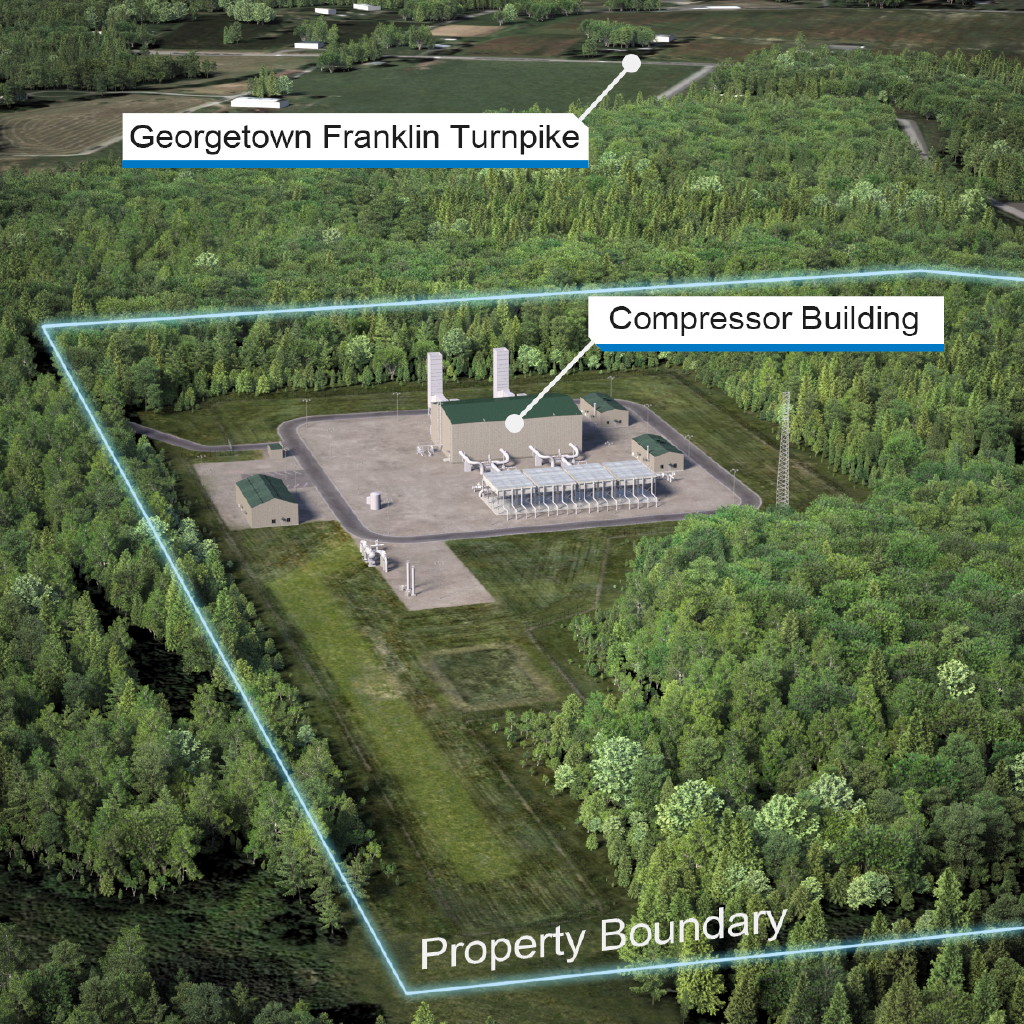The debate over the necessity of a natural gas compressor station in central New Jersey continued on March 18 as residents, officials, union laborers and stakeholders voiced their opinions about the environment, health concerns and the sustainability of energy in the region.
The Williams Company operates the Transco pipeline, a 10,000-mile interstate transmission pipeline system that transports much of the natural gas consumed in the northeastern United States. The system includes more than 50 compressor facilities and currently features more than 500 miles of pipe and five compressor facilities in New Jersey, according to information provided by Williams regarding its Northeast Supply Enhancement (NESE) project.
The NESE project is a proposed $1 billion enhancement of existing Transco infrastructure in Pennsylvania, New Jersey and New York that includes a proposed new compressor facility in Franklin Township, known as Station 206. The facility would feature two natural gas-fired turbine compressor units with a combined output of 32,000 horsepower.
The preferred location is a 52-acre tract approximately 1 mile south of the intersection of Route 27 and Route 518; the 16-acre site would be surrounded by a wooded buffer, according to the company.
For more than three years, residents have expressed concerns because of the proximity of the proposed compressor station to the Trap Rock Industries rock quarry in Kingston; the potential for clay byproducts to be disturbed during construction; the possibility of leaks, fires and explosions; and quality of life disruptions due to health and environmental concerns.
The New Jersey Department of Environmental Protection (DEP) held a public comment session on Nov. 5 in Franklin, and then again last week at Hammarskjold Middle School in East Brunswick.
According to Pradip Chakravarti, who attended both the public hearing and pre-meeting opposition rally, both were attended more than 200 area residents including people from Kendall Park, Franklin Township, South Brunswick, Sayreville and Old Bridge, including 60 from his own community, Princeton Manor, which lies within a mile of Transco’s proposed compressor station.
“Community residents are fearful of the effect of air pollution from gas powered turbines that will emit large amounts of carcinogens like formaldehyde and toluene, and the potential for fire and explosion from leaking pipes, sections of which are 40 to 50 years old,” he said.
However, a media statement issued by Williams states: “We have effectively designed this project in such a way that any potential environmental impacts will be largely temporary and minimal. The comprehensive final Environmental Impact Statement issued by the Federal Energy Regulatory Commission in January 2019 positively reflects our efforts to design this project in an environmentally responsible manner, ultimately concluding that the project’s construction and operation would not significantly affect the environment.
“Natural gas is a critical component of the mix of energy sources necessary to meet the region’s growing energy needs and to help meet its aggressive clean air goals. The project will initially enable New York City to reduce local air pollutants by 300 tons annually – including smog, acid rain and particulates that have negative health and environmental effects on the State of New Jersey.”
The company also offered statements of support in its prepared document.
“This is the kind of economic driver that the state of New Jersey sorely needs. This project will enhance and improve our state’s existing energy infrastructure, making clean, American made natural gas more affordable and reliable. Moreover, these improvements will occur with a minimum direct impact to the people of New Jersey. It’s a win-win,” said Ciro Scalera, director of Government Relations for the Laborers’ – Employers’ Cooperation & Education Trust (LiUNA).
“This project represents a critical step toward building a financially viable and competitive New Jersey. It means putting more than 2,400 men and women to work in prevailing wage jobs and significantly improving our state’s existing infrastructure at the same time. Given these facts and their importance to the state Operating Engineers Local 825 is urging DEP to move this forward,” said Greg Lalevee, business manager for International Union of Operating Engineers, Local 825.
“The NESE project is of critical importance to our state. We are looking at the creation of thousands of jobs, while providing new tax revenue to New Jersey and local economies, all while reducing our regional carbon footprint,” said Chris Hartman, vice president of the New Jersey Alliance for Action.
“Natural gas is a critical part of our state’s energy mix. As a cleaner energy source, the affordability and reliability of natural gas allows New Jersey to stay competitive in an unpredictable economic landscape,” said Tom Bracken, president and CEO of the New Jersey Chamber of Commerce.
“The NESE project is critical to New Jersey for several reasons. It will lower our carbon footprint, provide a clean, safe source of energy, and all while providing enormous economic benefit to the state. This is an opportunity that, environmentally and economically, we cannot turn down,” said Dennis Hart, executive director of the Chemistry Council of New Jersey.
“Natural gas is the kind of reliable, cost-efficient energy source that we need more of. At the same time, this project will create several thousand good paying jobs for hard working New Jerseyans. Add to that the hundred million dollars it will put into the state’s economy and we can see that this project is something New Jersey should not pass up,” said Robert A. Briant, chief executive officer of the Utility and Transportation Contractors Association.
Williams Transco is in the final stages of the regulatory review, which started nearly three years ago. The company received the final Environmental Impact Statement from FERC in January. The final FERC authorization could happen very soon. No additional comment hearings have been scheduled by the agencies, according to Christopher Stockton, representative for Williams Transco.
Other opponents of the project who have spoken publicly in the past could not be reached for comment by press time.
Contact Jennifer Amato at [email protected].

